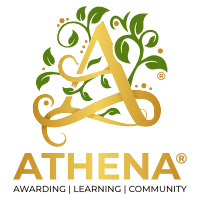Defining Educational Standards
As made clear in our in the Standards of Education and Training the Register is open to considering qualifications beyond those awarded by Athena and/or accredited or recognised by regulating bodies.
In such cases each qualification is considered on its individual merits against clearly defined standards of delivery and assessment, which the Register considers to be comparable or appropriately equivalent to qualifications currently recognised.
The Register defines the foundations of educational standards as being:
1. Independent/External accreditation
All qualifications must be accredited by external and independent awarding body whose standards are reflective of appropriate national standards in education and vocational learning.
2. Assessment Approach
Ensure an assessment approach and process that is appropriately valid, authentic, current, sufficient and reliable. The Register defines these as follows:
- Validity – does the assessment genuinely measure the intended outcomes of the modules or qualification
- Authenticity – is this the learners own work, and a general representation of their learning
- Currency – is this a genuine reflection of current theories and practices around the topics
- Sufficiency – is the work produced of sufficient level for the qualification
- Reliable – are the assessment decision similar and equable between learners and programmes
3. Standardisation
The Register seeks confirmation of a standardisation process that aims to protect the credibility of the qualification by supporting the application through assessment of the key elements of valid, authentic, current, sufficient and reliable (as above), but also to ensure that all learners receive training and assessment that is fair and respectful to them as their individuals, as well as consistent with that received by other learners (within and between cohorts) and in-line with the defined outcomes for each qualification.
3. Quality Assurance
An appropriate quality assurance process that on a sampled basis confirms the findings of findings and outcomes of the principal assessment, as well as inline with these defined educational standards.
4. Total Qualification Time
That there is Total Qualification Time that is no less than 200 hours, which is a blend of directed learning, individual research and study, supported practice client sessions and written up case studies.
The activity balance within Total Qualification Time shifts as Level increases, generally the expectation of the Register that the higher level the qualification, the higher the expected level of self-guided learning and independent research on the part of the learner.
Total Qualification Time includes some direct 1-2-1 interaction with course tutors
5. Equality Diversity and Inclusion
The teaching and assessment process should be accommodating the individual learners such that it minimises bias and remains Equality, Diverse and Inclusive sensitive though-out. In so maintaining alignment to framework of the Equality Act 2010 and the Register’s Equality Diversity and Inclusion statement.
6. Reasonable Adjustments and Special Considerations
The Register acknowledges that there will be certain situations where learners may need their personal situation or circumstances taken into consideration in the learning and assessment process. As such the Register expects that all qualifications accommodate are willing to consider Reasonable Adjustments and Special Considerations supporting individual learners needs where and when they arise.
Professional Details
The Register also requires professional details for those providing the training, this includes an outline of appropriate supporting experience and qualifications.
Where a course is promoted as therapeutic (e.g. Counselling, Therapy or Psychotherapy) then course designers and trainers need to be qualified in the same to at least a UK Level 5.
A site visit may also be included in the recognition process.
The cost of review
The cost of reviewing a qualification is available on request. The Register accepts requests for recognition from qualification providers on behalf of their (collective) learners, though the application and any subsequent registration remains with the practitioner.

